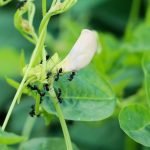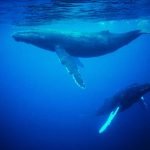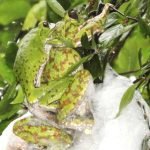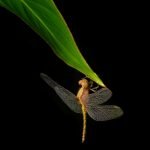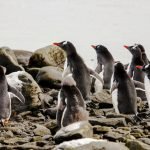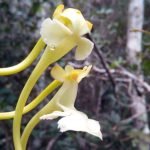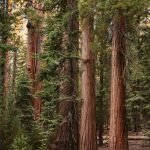A taste adventure: edible ants offer unique flavors
Imagine you're at a picnic, enjoying the sunny outdoors, when you notice ants crawling near your food.
While most of us might wave them away,...
Study shows owning a dog can boost stress-relief and focus brainwaves
A recent study published in PLOS ONE by Onyoo Yoo and colleagues from Konkuk University, South Korea, sheds light on the benefits of spending...
Whale menopause offers clues to human evolutionary puzzle
The phenomenon of menopause, where females outlive their reproductive years by decades, puzzles many, including scientists who wonder about its evolutionary purpose.
Why would nature...
Why tree frogs lay eggs on the ground
In a fascinating study from Nagoya University in Japan, researchers have uncovered why tree frogs, known for their arboreal lifestyle, sometimes opt to lay...
Study suggests waxy dragonflies better adapted to climate change
Biologists at the University of Colorado have uncovered an interesting survival strategy among dragonflies in increasingly warm and dry climates.
Their research, featured in the...
New type of killer whale in the northeastern Pacific, identified by shark bites
Researchers from the University of British Columbia (UBC) have stumbled upon a potentially new population of killer whales off the coast of California and...
Plastic’s long reach: Polar birds at risk
When we think of plastic pollution, images of ocean creatures tangled in trash often come to mind. However, this problem stretches far beyond these...
New orchid species linked to Darwin’s famous flower discovered
Scientists from the Missouri Botanical Garden and their collaborators have made an extraordinary discovery in Central Madagascar—a new orchid species with a record-setting nectar...
Groundbreaking study demonstrates production of human insulin in cow’s milk
In a development from the University of Illinois Urbana-Champaign and the Universidade de São Paulo, a humble brown cow in the south of Brazil...
Giant sequoias in the UK: giants among us
In a fascinating turn of events, research led by University College London (UCL) and colleagues at the Royal Botanic Gardens, Kew, has uncovered that...

